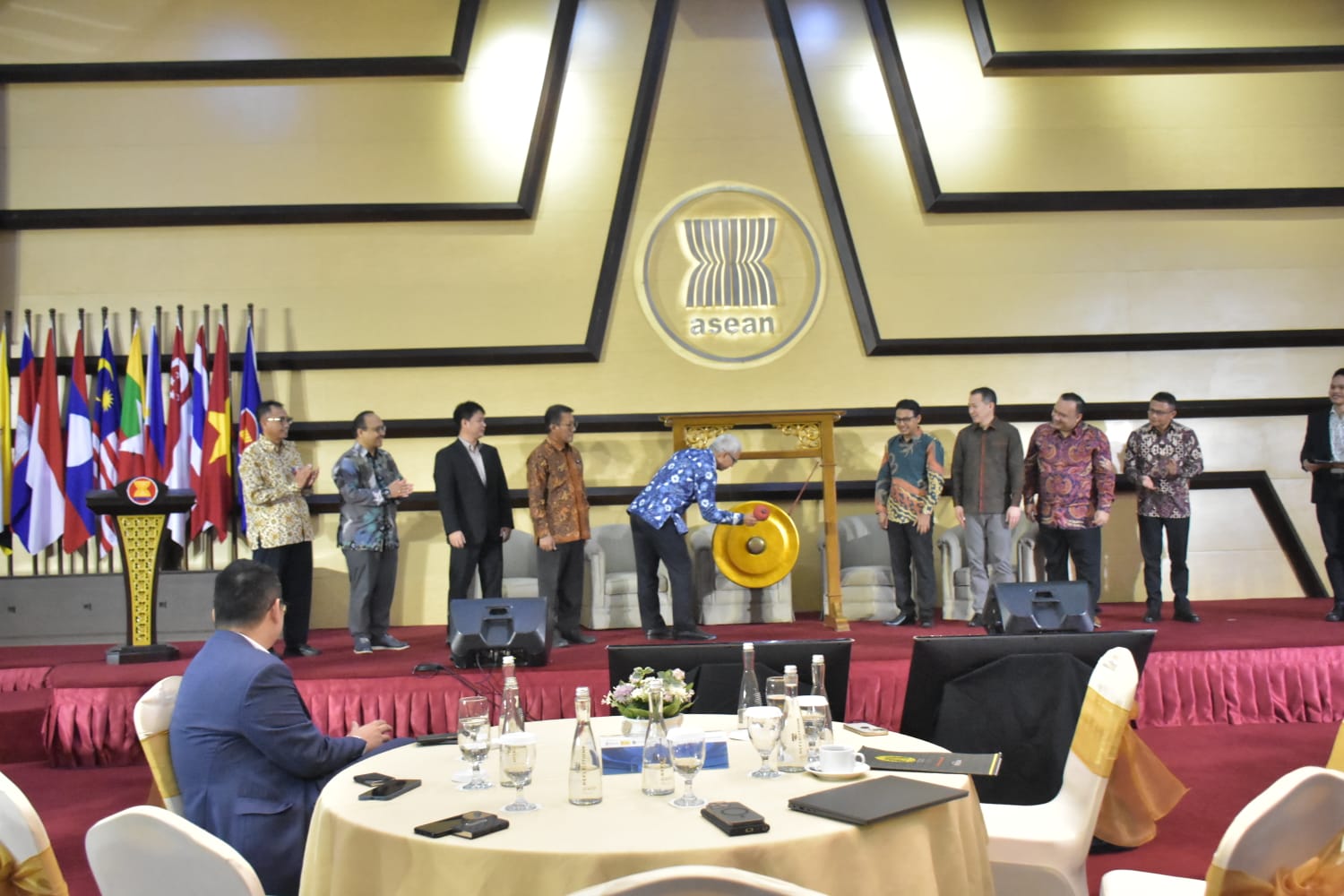Depok, May 25th 2023. Digital technology has an important role in achieving Sustainable Development Goals (SDGs) in ASEAN (Association of Southeast Asian Nations) and the Global South in general. Although digital technology has great potential in supporting the achievement of the SDGs, challenges such as access gaps, underdeveloped infrastructure, and vulnerability to cybercrime need to be considered.

Based on this problem, the Faculty of Law, Universitas Indonesia (FH) collaborated with Microsoft and the ASEAN Foundation to hold a Policy Dialogue entitled “Digital for Development in the ASEAN and Global South: Unlocking the Potential of Technology for Sustainable Growth and Inclusion”. This activity, which was supported by the Coordinating Ministry for Economic Affairs of the Republic of Indonesia, was held at the ASEAN Hall, Jakarta, on Tuesday (23/5).
On that occasion, the Dean of FH, Dr. Edmon Makarim, S.Kom., S.H., LL.M., said that this discussion was important to explore the potential of digital technology in realizing the SDGs. “The digital revolution brings unprecedented opportunities to create new global challenges. Digital technology can be used to develop many things, from smart cities, clear energy solutions, to sustainable agriculture, but it must also be balanced with security, safety and privacy,” said Dr. Edmon.
The potential use of digital technology has several implications for the development of the digital economy, including in ASEAN. Deputy for Coordination of Digital Economy, Employment and Micro, Small and Medium Enterprises, Dr. Ir. Mohammad Rudy Salahuddin, MEM, said that in 2022, the value of ASEAN’s digital economy reached USD 194 billion and is expected to increase to USD 1 trillion in 2030. This achievement will help ASEAN become the leading digital economy in the world.
According to him, the various achievements of digital economic transformation are strategic steps in supporting sustainable development economic growth. “To achieve the 17 SDGs targets, digitalization plays an important role in increasing the efficiency and effectiveness of sustainable development in various industries. Digital technology contributes to all SDG targets, especially to the 9th SDG, namely Industry, Innovation and Infrastructure.Infrastructure along with efficient and affordable service on information and communication technology can encourage countries to increase competitiveness and economic prosperity,” said Dr. Rudy.
ASEAN Executive Director, Dr. Piti Srisangnam said that digital technology has become an indispensable necessity for today’s growth and has changed the way people do business and improve communication. However, this progress has not been maximized and the global ASEAN & SEA region has not yet fully realized the potential for sustainable growth and inclusion. In the ASEAN context, digitalization is still a significant issue.
“Currently, around half of the ASEAN population lacks connectivity, this number is even higher in rural areas. This often happens due to limited infrastructure and resources. However, this problem is not only influenced by communication access, but also by political implications. Those who are left behind are at a disadvantage in terms of access to information, job opportunities, and many things. Therefore, all citizens must be ensured to have equal access to digital technology and resources for socio-economic development,” said Dr. Piti.
Meanwhile, President Director of Microsoft Indonesia, Dharma Simorangkir, said, ASEAN as part of the Global South has great potential to grow sustainably and inclusively, and has the potential to become a world power. This sustainable growth can be achieved by utilizing a technology-based digital economy. Regarding the potential of digital technology, at the event, several speakers were also presented who discussed material related to the role of digital technology in implementing the SDGs, the role of generative AI and cyber security in implementing the SDGs, as well as the challenges of implementing the SDGs and strengthening partnerships in ASEAN and the Global South.
The discussion, which was attended by policy makers, development practitioners, civil society organizations, academics and private sector actors, explored key policy issues, opportunities and challenges related to digital for development and identified strategies to harness the potential of technology to advance the SDGs. The results of this discussion will be presented in the form of a Policy Brief which aims to provide insight to policy makers in optimizing digital technology opportunities for the progress of society in the Southern region.



